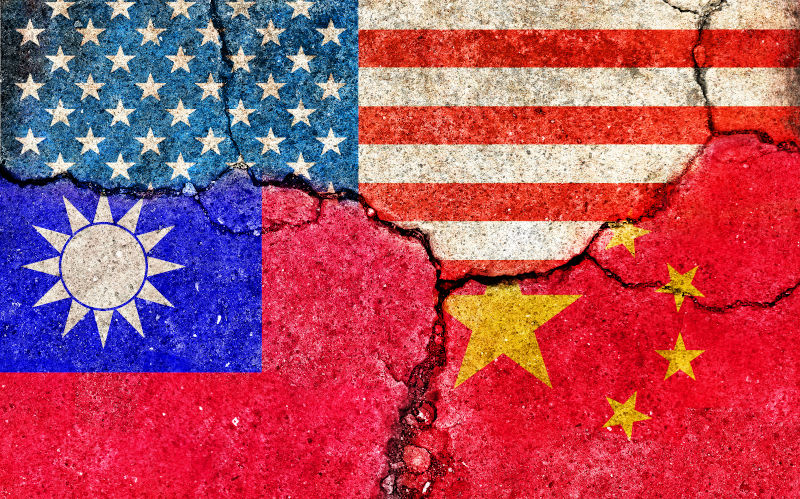Pelosi’s visit has brought the day of reckoning over Taiwan much closer
August 15, 2022
_Australia’s most strenuous diplomatic efforts should be directed not at improving relations with China but at urging the US to pursue a different course.
_
The visit by Congressional House Speaker, Nancy Pelosi has once again raised questions about the US ‘strategic ambiguity’ on Taiwan.
A previous article contended that the American ‘strategic ambiguity’ regarding Taiwan had not been jettisoned by Biden’s assurance that the US would defend Taiwan in the event of military hostilities from China. Surrounding comments and explanations from the Administration continued to obfuscate the full nature and extent of US ‘protection’.
The inherent contradictions of the policy of strategic ambiguity have become more stark as the policy has morphed more obviously into blatant duplicity. It calls to mind the famous line from Wild West movies where the ‘redskin’ says ‘white man speaks with forked tongue”.
Pelosi’s visit does not signal a move away from strategic ambiguity. It seeks, on the one hand to convince China, and the rest of the world, that the US abides by the One China Principle and the ‘Three Communiques’, but on the other hand, to persuade Taiwan that it can risk declaring independence from China, which China would seek to prevent by military action.
This serves the fundamental US objective of sparking a proxy war between China and Taiwan whilst standing to one side, in assumed innocence, to condemn China’s “unprovoked attack”, just as it has done with Russia and Ukraine. Continued provision of massive quantities of armament in ‘support’ of Taiwan would help to ‘bog down’ China in a protracted war that would, as former Secretary of State Pompeo said, “put China back where it was”.
Pelosi’s visit was not a blunder by a venal politician shoring up her husband’s extensive questionable business interests in Taiwan. It was a further deliberate step in the campaign of duplicity. President Biden, as Commander in Chief, could have prevented the visit by refusing the use of military aircraft and escort. Instead, he merely expressed disapproval and misgivings while allowing the visit to go ahead.
Pelosi also gave a stellar performance of speaking with forked tongue, asserting that she was seeking to reinforce the status quo of the One China Principle while pledging unswerving support for Taiwan’s democracy. Mainstream media’s constantly repeated description of Taiwan as the ‘democratically ruled island which the PRC claims, despite never having ruled it’, is designed to further justify Pelosi’s posturing.
The whole unsavoury episode was clearly intended to test China’s patience and push it into taking military action. It came close to succeeding, but for China’s remarkable self-restraint. Its live-fire exercises in the Taiwan Strait, with missile trajectories over the island and into the sea to the east of Taiwan were designed to warn Taiwan of what it would be up against if it chose to go down the military path. Beijing’s decision to close off channels of US/China political and military communication may prove to carry a great deal more risk.
Instead of condemning China’s actions as dangerous escalation, the Australian government should be thanking China for its careful, measured response, which studiously avoided any action which could have resulted in military conflict with US forces. In contrast, Pelosi’s actions and statements were clearly designed to provoke precipitate action from Beijing. It stayed its hand at the cost of considerable loss of face amongst its own citizens on Weibo (the Chinese version of the ‘Twitterverse’), who have expressed trenchant disappointment in their government’s apparent failure to “punish” Pelosi.
What has been demonstrated this past week is that the US is still implacably determined to impose a war on China, with Taiwan in the front line and Australia close behind. All of the arrangements under AUKUS, especially the “enhancements” from America to the “range and lethality” of Australia’s armed forces, are clearly aimed at China. The proposed nuclear powered submarines will pose a threat to China’s nuclear deterrent capability and oblige China to change its perception of Australia from potential partner to dangerous antagonist.
The decision to make Australian forces “interchangeable” with US forces appears to be giving the US a free hand in deciding when, where and how Australian forces will be deployed. Thus, America is not preparing to launch itself into war from bases in Australia, it is preparing to launch Australia into the American war against China.
The US has already demonstrated in Ukraine that it will go to great lengths to avoid the risk of direct conflict with a nuclear-armed adversary. It will take the same approach with Australia - providing the “means for defence”, but not engaging its own forces to protect Australia. Like Russia, China will perceive the US as the real adversary, but refrain from direct attack, for the same reason of avoiding nuclear war. It will not, however, hold back from inflicting maximum damage on any American proxy.
Pelosi’s visit has brought the day of reckoning over Taiwan much closer. Australia’s alliance with the US and its loyal contributions to the many American misadventures around the world since 1950 have earned it the right to much more than simply following in America’s wake. Australia’s most strenuous diplomatic efforts, at this point, should be directed not at improving relations with China but at urging the US to pursue a different course.


